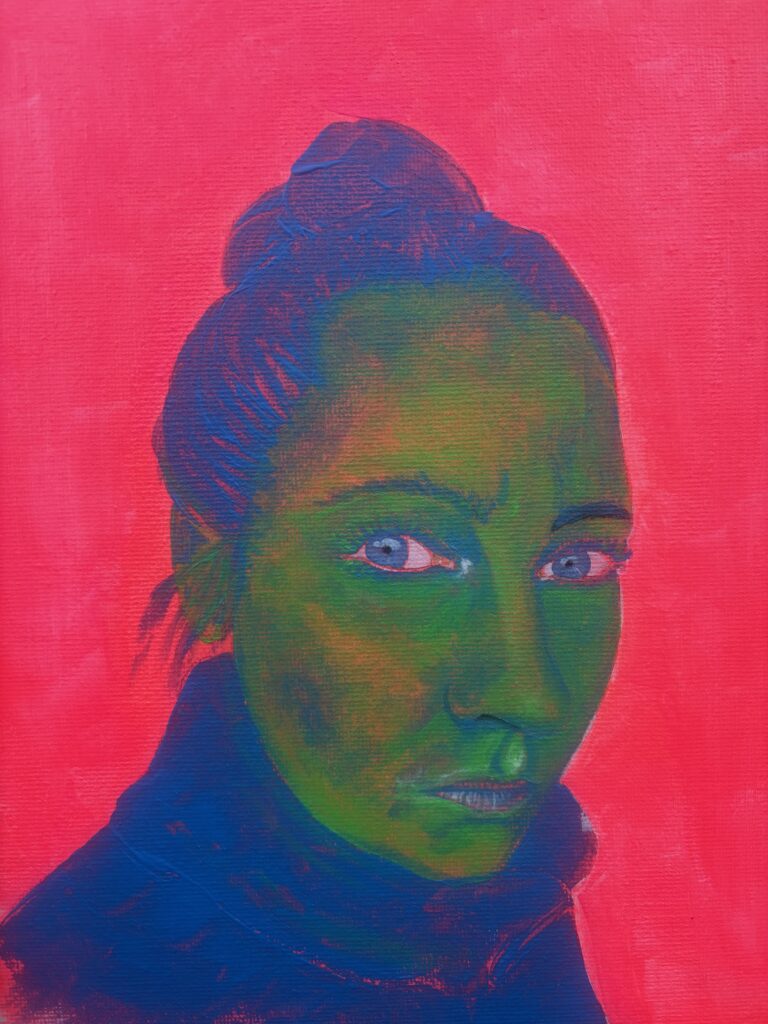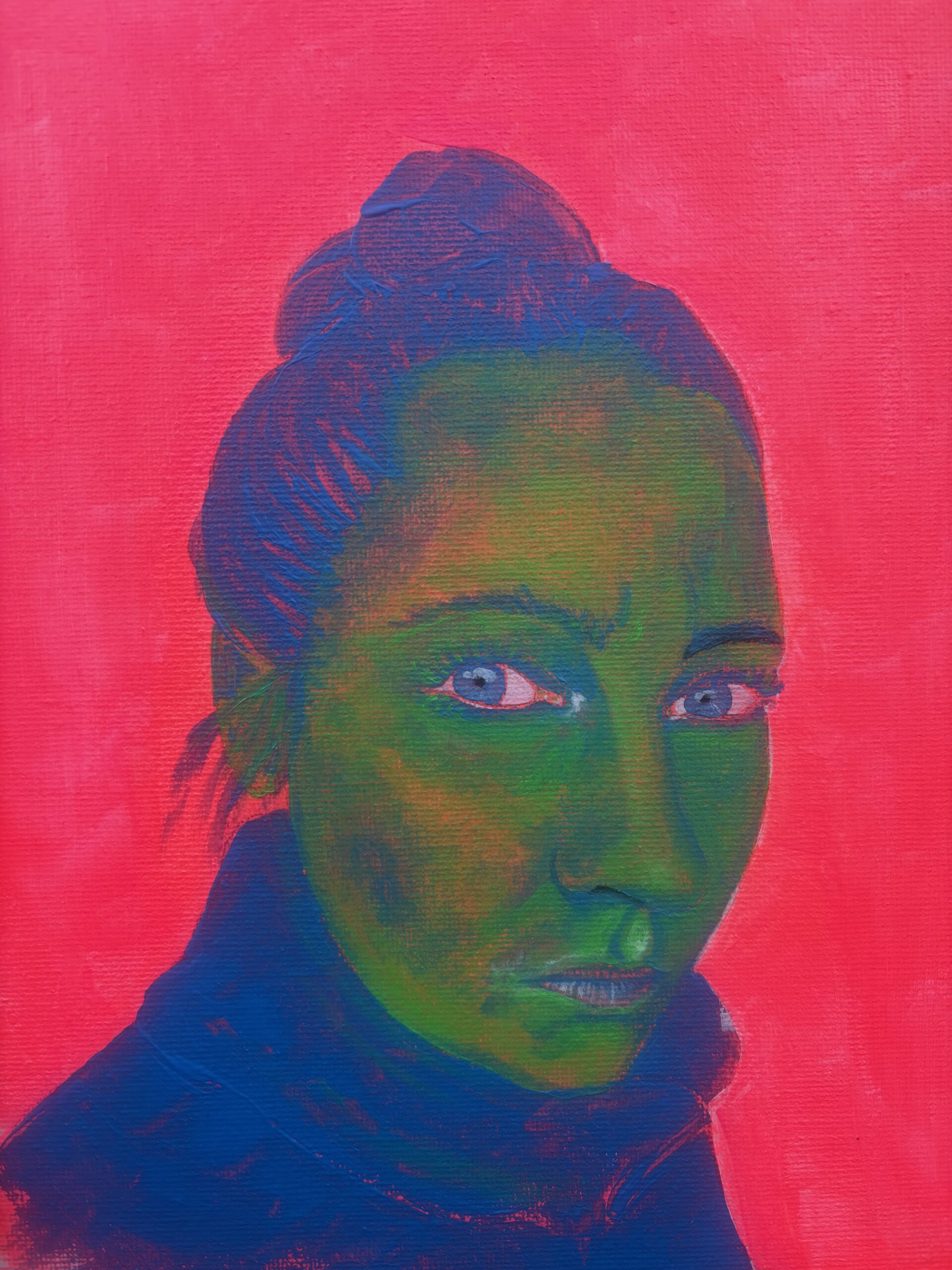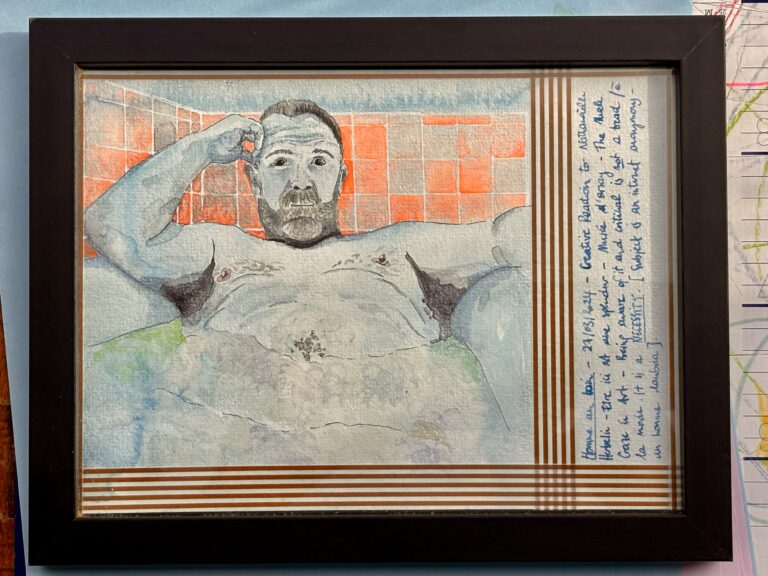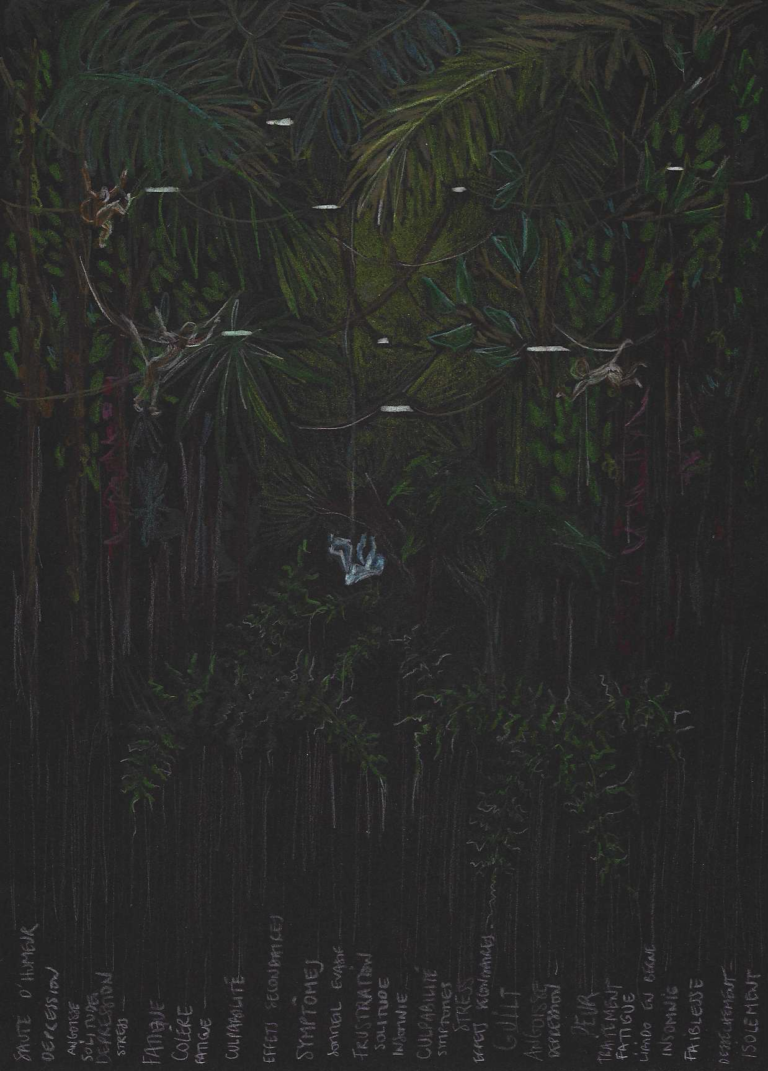AUTOPORTRAIT
« Missing (in cinema, novels and popular culture) is the crucial life stage where the woman is initially tired, anxious and cross, before undergoing an internal renaissance where she steps over the threshold into her new queendom of zero fucks. » (aka menopause).
This extract is from an article of the Irish Independent (It’s all the rage! Finally, menopause is having a moment — except on And Just Like That) and I came across it after looking into what Marian Keyes has been up to lately. She’s s an Irish superstar chick lit novelist and I read quite a lot of her novels when I was in my 20’s. I saw a clip of her on instagram the other day where she was interviewed and talking about how she doesn’t move out onto the road anymore when she crosses men on the street. How cross it makes her every time she realizes that she unconsciously jumps to attention and readies herself to make herself small in order to accommodate men. She most definitely has stepped over the threshold into her new queendom of zero fucks or at least is trying to and I admire her for it.
And I recognize that anger. It’s familiar to me because it’s been simmering in me for a while now and I’m realizing that being in a state of artificial menopause means I can relate much earlier than Nature intend.
I’m in the midst of fertility treatments as I write this. And I’m not going to lie, it’s hard. On a physical level but mostly on a psychological level. I feel a bit untethered and floating between « it’s happening ! » and « we’re not there yet ». My unconscious has been grappling for something to get my mind off my dysfunctional body, my reactions to the treatment, the uncertainty, the hope and the dread – Uncertainty, Hope and Dread. The IVF trifecta.
And some of the anger that has been simmering under the surface for a while now has latched onto the subject of women in the Arts.
I mentioned two additions to my TBR pile in my last article and boy, was I not disappointed. I HAVE to talk about Être ici est une splendeur by Marie Darrieussecq. Combining that read with Linda Nochlin’s essay Why are there no great women artists has stoked in me an emotional fire of unexpected intensity. Reading about Paula Becker’s life as a female painter in the 1900’s left me with such a sense of wasted of potential, sadness and injustice… I’m in awe of this woman who shut out every single voice around her telling her she couldn’t be a painter, became a painter anyway just to die at age 31 of child birthing complications. Any woman who achieved anything artistic, EVER, (but especially painters) deserves so much more recognition than any male counterpart because the odds against them weren’t stacked, that’s an understatement : they were piled all the way up to space !
It is said that Paula Becker’s last word before she died of a pulmonary embolism on her baby’s 18th day of life was « Schade…! »
And Schade says it all.
Pity. Pity I didn’t have time to become a great artist, pity I was born a woman, pity I was surrounded by misogenists, pity when you’re a woman, having a child equates to giving up all your hopes and dreams to become a domestic slave, pity I’ll never know what it is to be a mother and my child won’t know my love, pity women were expendable bodies for so long that medical research didn’t bother investigating female health, pity my work is beautiful but barely to this day makes it onto museum walls.
Just Schade.
I’m currently forcing P. to read the book because I’m curious what reaction it provokes in a man. Is my reaction universal or is it strongly linked to my own life experience as a woman ?
I remember going to the library every Saturday with my father as a child, then as a teen. My brother and sisters and I would bring home cart loads of books. We read novels, magazines and lots of comics. For the longest time (especially in France), the genre has been written by men for men. So, in the 90’s and 00’s, we grew up with Thorgal, Tintin, Blake and Mortimer, Docteur Poche, Spirou, Boule et Bill, Yakari, Alix et Enak, Jerome K Jerome Bloch, Lucky Luke, Lanfeust de Troy, XIII, Asterix et Obelix, Les Schtroumpfs, Gaston Lagaffe… The list just goes on and on and on… Male protagonist after male protagonist. (The only two I remember with female protagonists were « la quête de l’oiseau du temps » series and Jeannette Pointue, both written and drawn by men. And it shows.). But the thing is, I loved them ! It never occurred to me that I couldn’t relate to the main characters because I was a girl ! And I realize now that apparently the same cannot be said of boys and men.
Here’s a very thorough and interesting article entitled The gender gap in reading: Boy meets book, boy loses book, boy never gets book back and the numbers are devastating :
Firstly boys and men read less than girls and women and also, when they do read, they read men.
A study by Nielsen Book Research found that, of the 10 bestselling male authors, readership was roughly evenly divided by gender, with 55% male readers and 45% female readers. In contrast, only 19% of the 10 bestselling female authors’ readers were male, compared to 81% female. Men also read fewer books with female protagonists than do women—a problem compounded by the fact that fewer books feature female protagonists overall. For example, in the top 100 children’s books, male characters (human and nonhuman) in leading roles outnumber female characters two to one.
And I for one, am sick of it.
I’m sick of chick lit being a sub-genre, I’m sick of romance being snickered at and I’m sick of female artists being under-represented and under-valued. I’m sick of men sticking to their guns whether consciously or unconsciously. I’m sick of women being interpreted, objectified, described and never just told.
I’m sick of the male narrative and just like Marian Keyes, I think from now on, I will focus on female writers, female painters and more generally, female artists.
Reading Marie Darrieussecq and Linda Nochlin has prompted me into creative action. So I decided to paint my autoportrait. This is me, all of me in this moment but mostly angry me, on the threshold. A take of myself just to make something to counterbalance all the women before me who have had the male gaze projected on them. It’s not much (some might even say it’s nothing) but to me it’s something.





Yes to all of that. The narrative that this new bunch of feminists comes out with, that there really were loads of brilliant women in the arts but they’ve been airbrushed out of history by men, is imho nonsense. It shows a disregard of social history. There have been some excellent women painters from the Renaissance onwards, but they were all rich women, who either had private means or fathers who were rich and also understanding. At the same time, any (male) urchin could be picked off the street by a painter and trained if he showed talent. The history of art is as much influenced by social conditions as any other area. No, the great women weren’t gagged to suit the patriarchy (that bowdlerised word) they just were never allowed to crawl out of the chrysalis.
Exactly. Linda Nochlin also exposes the whole « artistic genius » scam. Giving the genius accolade exclusively to men and creating the narrative of « the urchin » pulled out of misery because somebody (another man) noticed them drawing in the dirt with a stone at the age of 4 and then fed the genie in them. Take anyone and make them draw all day every day for years, they’ll get good. and if they showed an inclination early on, they’ll get great. Women weren’t ever given the option. The genius narrative is a load of crap and it’s another way women are told Art is a men’s thing, only people with penises get to be geniuses. (And also, the street urchins who became great artists are a minority. Most artists became artists because they had artistic relatives. It’s the same bullshit narrative as the transfuge de classe that serves capitalism : if he can do it anyone can and if you don’t it’s on you. Forget that 99% of the upper class citizens were born upper class and you got yourself a myth to strive for that validates the system in place).